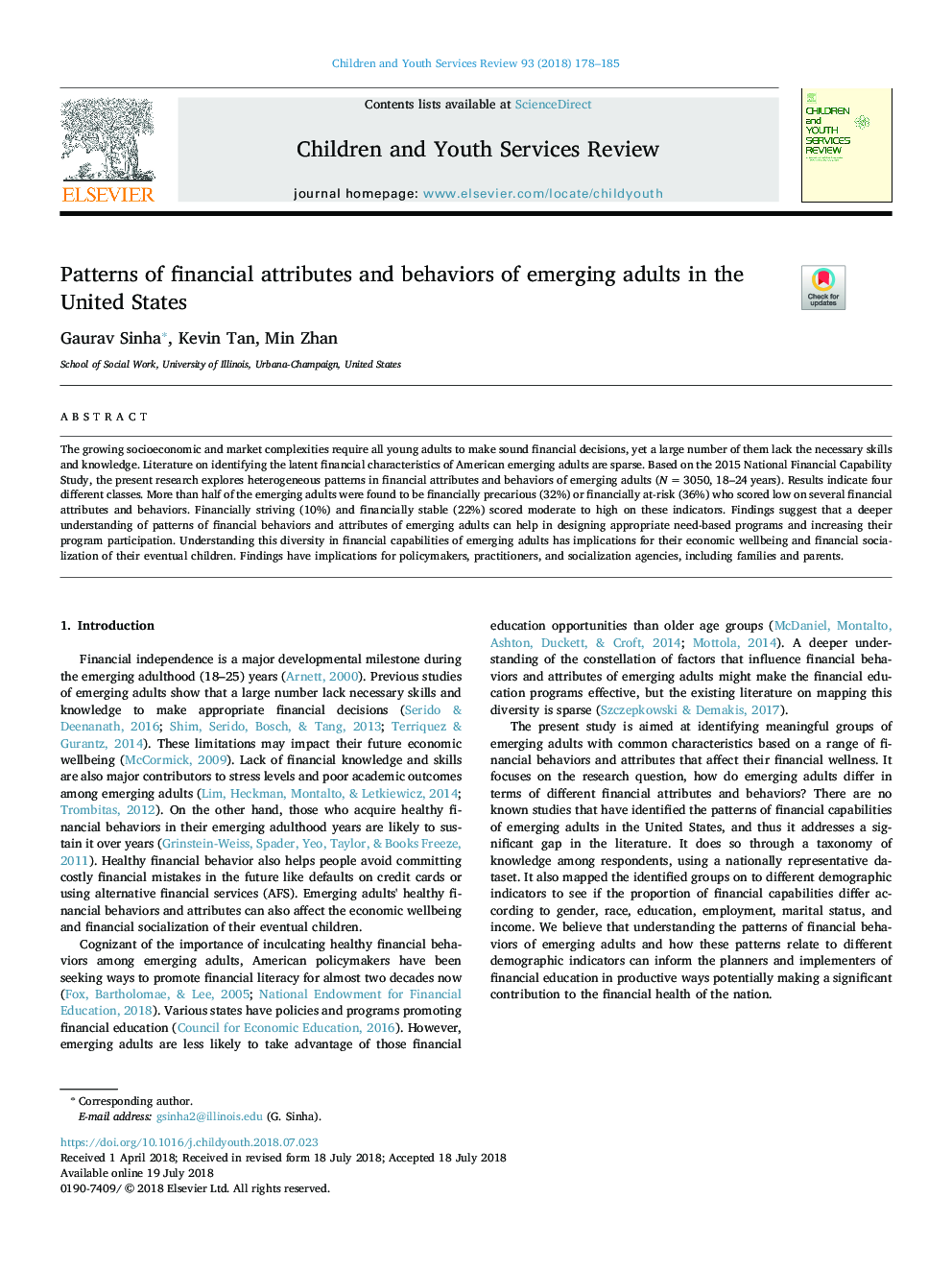| Article ID | Journal | Published Year | Pages | File Type |
|---|---|---|---|---|
| 6832802 | Children and Youth Services Review | 2018 | 8 Pages |
Abstract
The growing socioeconomic and market complexities require all young adults to make sound financial decisions, yet a large number of them lack the necessary skills and knowledge. Literature on identifying the latent financial characteristics of American emerging adults are sparse. Based on the 2015 National Financial Capability Study, the present research explores heterogeneous patterns in financial attributes and behaviors of emerging adults (Nâ¯=â¯3050, 18-24â¯years). Results indicate four different classes. More than half of the emerging adults were found to be financially precarious (32%) or financially at-risk (36%) who scored low on several financial attributes and behaviors. Financially striving (10%) and financially stable (22%) scored moderate to high on these indicators. Findings suggest that a deeper understanding of patterns of financial behaviors and attributes of emerging adults can help in designing appropriate need-based programs and increasing their program participation. Understanding this diversity in financial capabilities of emerging adults has implications for their economic wellbeing and financial socialization of their eventual children. Findings have implications for policymakers, practitioners, and socialization agencies, including families and parents.
Related Topics
Health Sciences
Medicine and Dentistry
Perinatology, Pediatrics and Child Health
Authors
Gaurav Sinha, Kevin Tan, Min Zhan,
